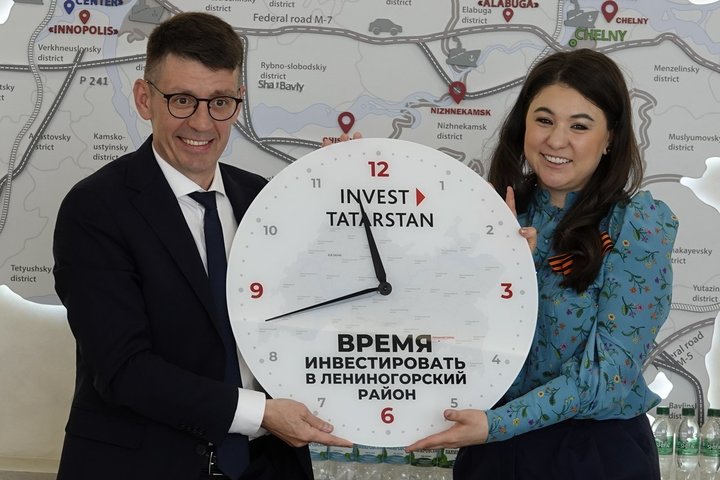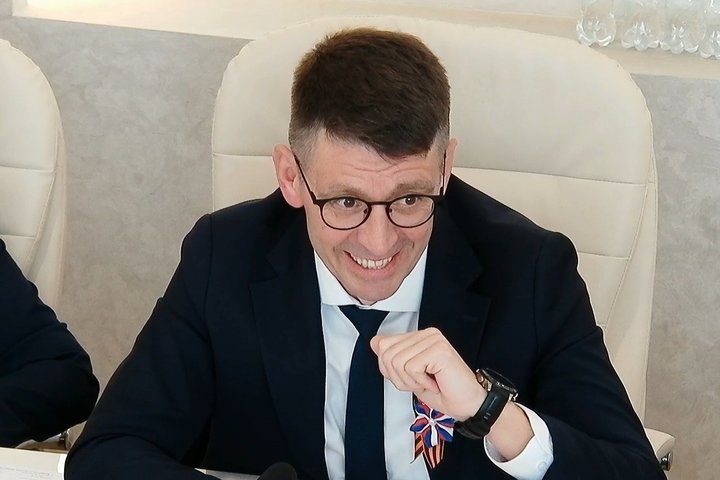Turkey from ‘Chistopolye’, royal spa, and Moscow capital: who is investing in Leninogorsk
Head of the Leninogorsk District Marat Girfanov spoke about how he plans to attract investors to agriculture

“We are actively seeking investors in agriculture, as we have significantly fallen behind in both meat and dairy livestock farming,” stated the new head of the Leninogorsk District of Tatarstan, Marat Girfanov, with self-criticism during the Municipal Hour at the Investment Development Agency. A former official from the Almetyevsk executive committee, he has been running the district since autumn 2024, but has already set himself an ambitious goal: to multiply agricultural output to 7 billion rubles by 2027–2028. In addition, he is ready to assist potential investors in establishing direct contact with Tatneft, which has put up for sale 50 real estate properties in the city centre. Previously, the former oil industry buildings were acquired by the Moscow-based company Water Technologies Engineering and the Solushen holding, which established the subsidiary KS Mechanica. Read more details in Realnoe Vremya’s report.
An investment advance
Leninogorsk District ranks among the top ten municipalities in Tatarstan in terms of investment in fixed capital — by the end of 2024, it had attracted 37 billion rubles, securing seventh place. This was announced during a session of the Municipal Hour at the Investment Development Agency, where the young head of Leninogorsk District, Marat Girfanov, appeared for the first time. For him, making it into the top ten served as a kind of advance for the future. Prior to this, the official had worked for many years in the executive committee of the oil capital, where he established direct contacts with the main donor to all oil-producing territories of the republic — Tatneft. Although the company has long since switched to a grant-based support system for the regions, Marat Girfanov continues to align the district’s development strategy with the company’s investment programmes. He did not specify the details of the programme, but it was clear that the “umbilical connection” remains.

Taliya Minullina noted significant progress in the inflow of investments in just the year 2024 alone. According to her, a strong leap was made during this period: the district managed to rise from 12th to 7th place among Tatarstan’s 43 municipalities. However, an important nuance emerged. Almost all private capital was directed into the oil industry. This comes as no surprise, given that Leninogorsk has been, is, and remains an oil-producing region of the republic. Oil extraction continues here through Tatneft’s divisions and small oil companies, among them Geotech. While the volumes of extraction are no longer as massive as in Soviet times, the head of the district reminded that the Leninogorsk sections of the Romashkino oil field helped lift the national economy even in the post-war years. According to Marat Girfanov, one-third of the total 100 million tonnes of oil produced last year came from this district.
Another major “resident” of Leninogorsk is one of the key oilfield service divisions of the Tatgras holding, headed by Shafagat Takhautdinov — LeninogorskRemservice PLC.
By the results of 2024, the gross regional product totalled 120 billion rubles, placing the district sixth in Tatarstan. The volume of shipped products amounted to 37.5 billion rubles.
They lack 50 tonnes of raw milk a day: how to boost agriculture
The head of the district sees the path to diversifying the “oil-based” economy in the development of agriculture. “We are actively seeking investors in agriculture, as we have significantly fallen behind in both meat and dairy livestock farming,” said Marat Girfanov.
According to him, agricultural enterprises currently generate only 3 billion rubles in revenue. However, the agro-industrial potential allows for much greater growth. There are 73,400 hectares of available arable land and 119,000 hectares of agricultural land. “Next year, we plan to reach 5 billion rubles, but our goal is to raise that to 7 billion,” he outlined as the main target for the near future.
The first step has been taken in establishing cooperation with the company Avgust, which plans to build a livestock complex for one thousand head in Leninogorsk. Speaking about raw milk production, Marat Girfanov lamented that the district currently collects only 50 tonnes per day. Everything produced is bought up by a local cheese manufacturer — and even that is not enough, so they also purchase additional supplies from Samara.
The warehouse of the Azerbaijani diaspora, Prodsservice-S, has also established itself here. It received an investment of 65 million rubles, and its revenue for the year amounted to 1.1 billion rubles.
The CEO of Chistopolye holding company, Nail Zalakov, reported the launch of turkey production at the site of the former Leninogorsk poultry farm. “Two years ago, the largest poultry farm in the republic, Leninogorsk Poultry Farm, was shut down due to bird flu contamination. After that, the Chistopolye holding company purchased the vacant complexes. Currently, 36 out of 45 buildings have been restored. 1.6 billion rubles have been invested in the modernisation of engineering infrastructure, and a slaughterhouse has been launched," he explained.
The plan is to launch a full turkey production cycle here, with revenue expected to reach 2 billion rubles by 2026. With this project, Chistopolye aims to enter the top 6 producers, with volumes of over 1,000 tonnes per year. Currently, there are 87,000 turkeys on site, with the goal being 234,000 turkeys, or 6,000–7,000 tonnes of meat per year.
“We've noticed there’s no price”
There are also considerable challenges with the development of urban space. Tatneft-Activ has put 50 real estate properties up for sale, but without specifying a price. According to the head of the district, he is ready to personally act as an intermediary in negotiations with the oilmen, as they want to transfer the assets into reliable hands.
The deputy director of the Vtiamin Scientific and Production Association, Vyacheslav Muravtsev, explained why the Moscow-based company decided to purchase non-core assets from Tatneft. According to him, a 1.5-hectare site with four production workshops totaling 4,500 square meters was acquired. The first phase has now been launched, with an investment of 150 million rubles. Why did they choose Leninogorsk? “Because there are many potential customers in Tatarstan, Bashkortostan, and Samara. Logistics is a major cost for any company. When choosing a region, we found an excellent location,” he explained.
Another Moscow-based company, Solution, purchased the premises of the Leninogorsk Machine-Building Plant, which has since become the base for the KS Mechanika PLC. According to the company’s development director, Vladimir Yelkin, the goal is to expand production of containers for heat exchangers. Currently, the company is known as a supplier of fasteners according to ASME standards, as well as a supplier of forgings made from special alloys and seamless stainless steel pipes.
No available land near Bakirovo
“The main intrigue of the day is where the money for the Barkhat restaurant came from," said local investor in the entertainment industry, Artur Mukhametshin.
He has invested a significant amount in the creation of the Barkhat restaurant, which is set to open in May. However, the main highlight is the royal spa being planned in the city center. The two-story building will house a salon with five swimming pools, and on the second floor, a hotel. The investor is confident that the demand for his services will be steady, as “oil workers” who left decades ago for the North are returning to their hometown. He is not concerned about competition from the famous Bakirovo sanatorium. By the way, there are no available land plots for the creation of new sanatoriums nearby, as reported by Marat Girfanov.